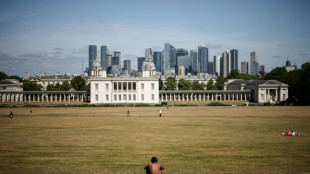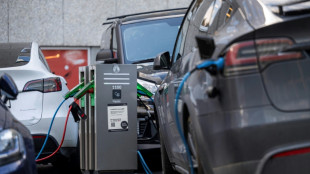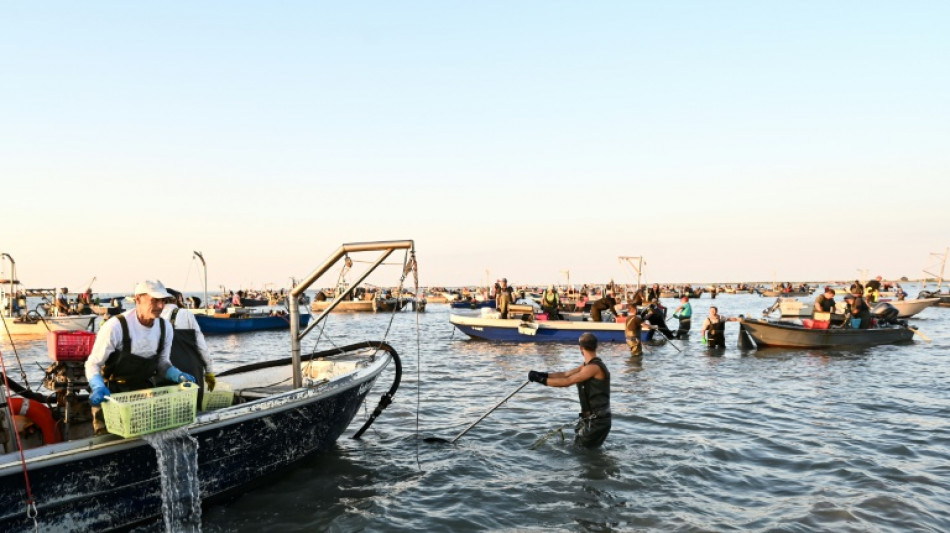
-
 'Girl with a Pearl Earring' to be shown in Japan, in rare trip abroad
'Girl with a Pearl Earring' to be shown in Japan, in rare trip abroad
-
Syria tells civilians to leave Aleppo's Kurdish areas

-
 'Sign of life': defence boom lifts German factory orders
'Sign of life': defence boom lifts German factory orders
-
Japan's Fast Retailing raises profit forecast after China growth
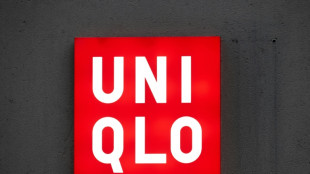
-
 Olympic champion Zheng out of Australian Open
Olympic champion Zheng out of Australian Open
-
England's Brook 'deeply sorry' for nightclub fracas
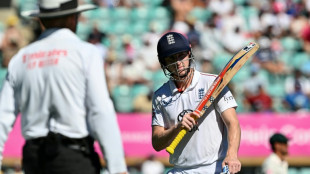
-
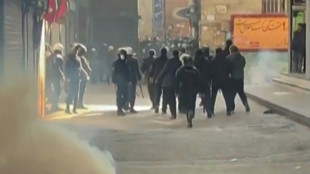 New clashes in Iran as opposition urges more protests
New clashes in Iran as opposition urges more protests
-
Equity markets mostly down as traders eye US jobs data
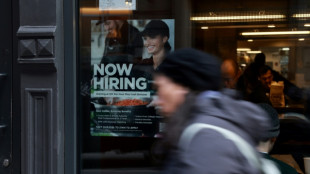
-
 England cricket board launches immediate review into Ashes debacle
England cricket board launches immediate review into Ashes debacle
-
Dancing isn't enough: industry pushes for practical robots

-
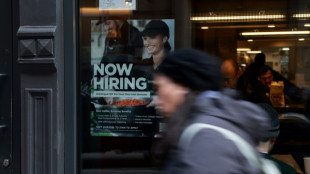 Asian markets mostly down as traders eye US jobs data
Asian markets mostly down as traders eye US jobs data
-
Australia to hold royal commission inquiry into Bondi Beach shooting
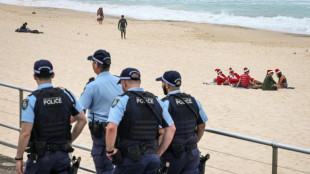
-
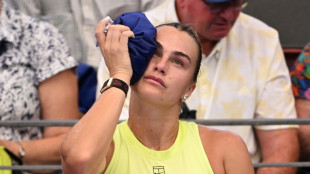 Sabalenka accuses tour chiefs over 'insane' tennis schedule
Sabalenka accuses tour chiefs over 'insane' tennis schedule
-
Cambodia to liquidate bank founded by accused scam boss
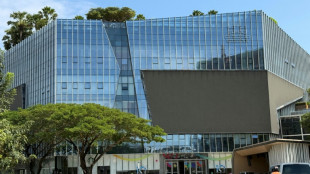
-
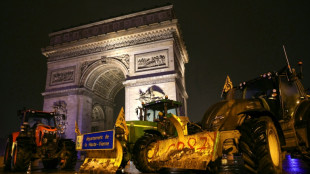 Farmers enter Paris on tractors in protest at trade deal
Farmers enter Paris on tractors in protest at trade deal
-
Viral 'Chinese Trump' wins laughs on both sides of Pacific
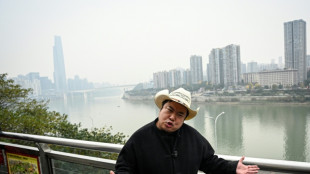
-
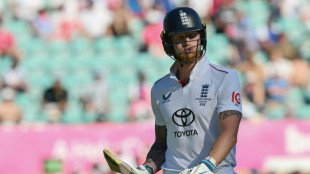 Stokes vows to stay on but 'wrongs to put right' after crushing Ashes defeat
Stokes vows to stay on but 'wrongs to put right' after crushing Ashes defeat
-
Lidl to drop broadcast TV ads in France
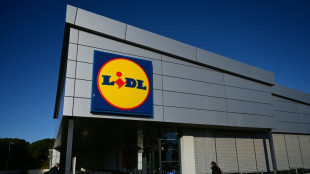
-
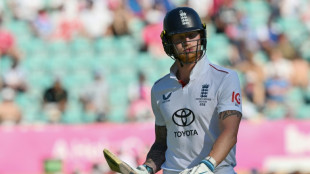 Stokes admits 'wrongs to put right' after crushing Ashes defeat
Stokes admits 'wrongs to put right' after crushing Ashes defeat
-
Sabalenka impresses again in Australian Open warm-up, vows more to come

-
 Gilgeous-Alexander to the rescue as Thunder sink Jazz in overtime
Gilgeous-Alexander to the rescue as Thunder sink Jazz in overtime
-
From Diaz to 'Mazadona' - five new faces starring at AFCON

-
 Startups go public in litmus test for Chinese AI
Startups go public in litmus test for Chinese AI
-
Death of Bazball: Five things we learned from Ashes series

-
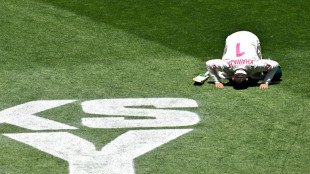 Australia's emotional Khawaja bows out for final time with Ashes win
Australia's emotional Khawaja bows out for final time with Ashes win
-
Asian markets mixed as traders eye US jobs data
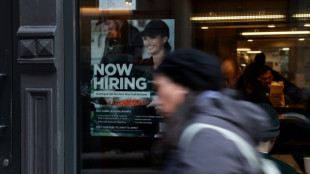
-
 Australia win final Test to complete 4-1 Ashes triumph over England
Australia win final Test to complete 4-1 Ashes triumph over England
-
Trump withdraws US from key climate treaty, deepening global pullback

-
 Trump pulls US out of key climate treaty, deepening global pullback
Trump pulls US out of key climate treaty, deepening global pullback
-
Morocco under huge pressure as hosts face Cup of Nations heat

-
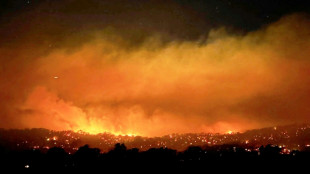 Australia heatwave stokes risk of catastrophic bushfires
Australia heatwave stokes risk of catastrophic bushfires
-
Australia 71-2 at lunch, need 89 more to win final Ashes Test

-
 Study shows how fast kilos return after ending weight-loss drugs
Study shows how fast kilos return after ending weight-loss drugs
-
Trump pulls US out of key climate treaty, science body: White House

-
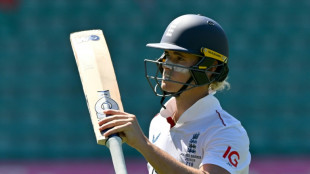 England all out for 342, set Australia 160 to win final Ashes Test
England all out for 342, set Australia 160 to win final Ashes Test
-
FDA Clears Toetal Solution's Ziptoe Hammertoe System

-
 AbTherx and Red Queen Bio Partner on Therapeutic Antibody Discovery
AbTherx and Red Queen Bio Partner on Therapeutic Antibody Discovery
-
Banyan Gold Intersects Multiple High-Grade Mineralization Occurrences in Powerline and Airstrip Deposits, AurMac, Yukon, Canada

-
 Best Platform to Buy Crypto 2026 Announced
Best Platform to Buy Crypto 2026 Announced
-
New Digital Platform Fast Food Menu info Launches to Simplify Fast-Food Menu and Pricing Decisions

-
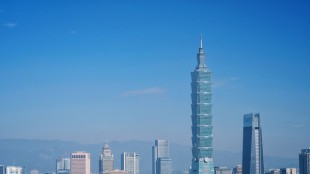 Guam W2 Electronic Filing and EFW2 Generator for GuamTax.com W-2GU Wage Data Upload Announced by Real Business Solutions
Guam W2 Electronic Filing and EFW2 Generator for GuamTax.com W-2GU Wage Data Upload Announced by Real Business Solutions
-
Silver Range Provides an Operational Update

-
 Zenwork Joins the National Association of Computerized Tax Processors (NACTP)
Zenwork Joins the National Association of Computerized Tax Processors (NACTP)
-
Kee Ming Group Berhad Inks Underwriting Agreement With TA Securities Ahead Of ACE Market IPO

-
 Market Logic Announces Technology Partnership with Zappi to Accelerate Innovation with AI
Market Logic Announces Technology Partnership with Zappi to Accelerate Innovation with AI
-
Just - Evotec Biologics Receives Grant for AI-Driven Optimization of Monoclonal Antibody Developability for Affordable Access

-
 Lighthouse Names Georg Beyschlag Chief Financial Officer as Company Scales for Next Phase of Global Growth
Lighthouse Names Georg Beyschlag Chief Financial Officer as Company Scales for Next Phase of Global Growth
-
Storm in a tea cup for Frank as pressure mounts on Spurs boss

-
 Sesko spark masks Man Utd disappointment for Fletcher
Sesko spark masks Man Utd disappointment for Fletcher
-
Venezuelan opposition blindsided by Trump, waiting it out


Italy's clam farmers fear blue crab 'invasion'
In the shallow waters of the Scardovari lagoon, fishermen catch clams for Italy's beloved spaghetti alle vongole, alongside mussels and oysters. But an invader risks putting them out of business.
The blue crab, native to the North American Atlantic coast, has been present across the Mediterranean for years but in recent months has become a serious problem on Italy's northeastern coast.
"The blue crabs are eating everything. This stretch of lagoon is becoming a desert," said Gianluca Travaglia, a 52-year-old farmer of mussels and clams.
He is the third generation of his family to have a boat on the "Sacca degli Scardovari", an economically important part of the delta where the Po River reaches the Adriatic Sea.
"Every day we fish more of them... I don't know what to do," Travaglia told AFP as he guided his motorboat across the water.
His fellow farmers had the same issue, he added.
"They can't even lower their nets anymore because the crabs swim into the nets and break them."
- 'Critical situation' -
Italy's government allocated 2.9 million euros ($3.2 million) last week to address what Agriculture Minister Francesco Lollobrigida called a "critical situation".
The money will provide "economic incentives" for those catching and disposing of the crabs, which he said lack natural predators in Italian waters.
Business lobby Coldiretti has described the phenomenon as a crab "invasion", driven by warming waters and climate change.
Across the Italian seabed, the crabs are "exterminating clams, mussels, eggs, other fish and molluscs, putting at risk the survival of 3,000 businesses in the Po Delta", Coldiretti said.
From their American origins, the "callinectes sapidus" has spread around the world, likely transported via ballast water from ships.
They have thrived in the Mediterranean Sea, which is warming due to climate change.
For years, fishermen from Albania to France and Spain have grappled with the spread of the blue crab, which is disrupting the natural balance of native populations.
Excellent swimmers and weighing up to one kilogram (2.2 pounds), they eat almost everything, while their sharp, blue-tinted claws are particularly adept at prying open clam shells.
- Crab spaghetti -
In Eraclea, outside Venice, restaurateur Luca Faraon is among a number of cooks seeking to explore how to use this new, tasty resource.
"With the blue crab, you can prepare many foods," said the 58-year-old, as diners tucked into crab spaghetti the chef prepared using garlic, cherry tomatoes and parsley.
"We are still thinking about how to use it as a dessert!" Faraon added.
The crab -- whose Latin name is said to mean "savoury beautiful swimmer" -- is a prized catch in the Chesapeake Bay on the United States' East Coast, where it is known as the Maryland blue crab.
After a meeting with the industry last week, Italian minister Lollobrigida said the problem might be an opportunity, citing potential markets in the United States and China.
"Blue crabs are a great resource," he said, emphasising their high levels of vitamin B12.
- 'Devouring clams' -
Yet Emanuele Rossetti, a biologist with the Polesine fishing consortium, one of Europe's largest shellfish farming associations, is pessimistic.
Clams were the core business of members of his group, and the molluscs cannot exist alongside large numbers of blue crabs, he said.
Although the crabs have been in the lagoon for about 15 years, there has been an "exponential" increase in recent months, Rossetti said.
He warned that the rate at which they were feasting on clams posed an immediate threat.
"I am sure that after December the fishermen of our consortium will no longer have any products to sell."
L.Miller--AMWN
